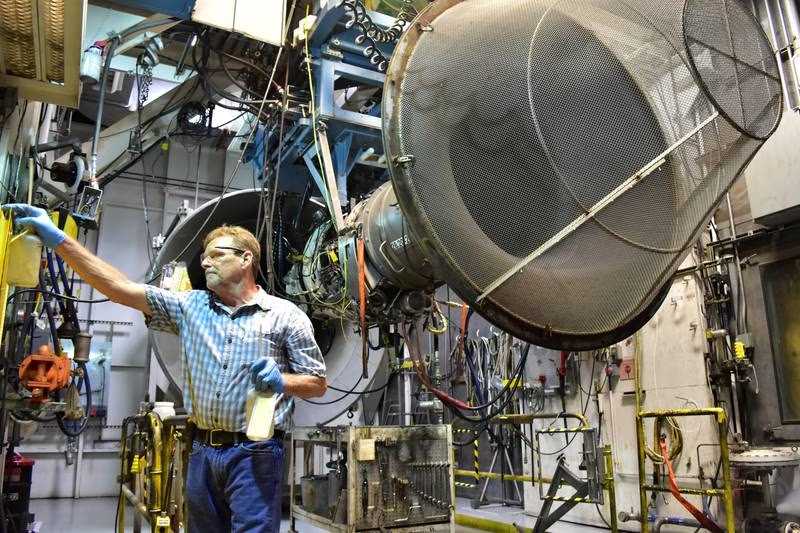Honeywell expects strong growth out of Mena region in 2023, executive says
29 January, 2023

Honeywell expects the Middle East and North Africa to be a high growth area this year as it looks to increased use of artificial intelligence in buildings and a return to pre-Covid capacity in the aviation sector.
The region "as a logistics hub, as an aviation hub — tourism I think will come back for the region as well — there's strength really across the board”, Ben Driggs, president of high growth regions for Honeywell, told The National in Davos on the sidelines of the World Economic Forum Annual Meeting.
Honeywell's two largest industries are aviation and energy.
“Regardless ... of what happens macro economically, of which there's a lot of uncertainty, both of those industries have a lot of tailwinds behind them, and are doing well. The world continues to open up … so, there's continued aviation growth," Mr Driggs said. "Obviously, the Middle East plays a critical role in that. And we expect that to continue, as, you know, parts of the world open up ... and then energy, whether it's the traditional forms of energy, or the new sustainability and renewables and newer forms of energy, also have a lot of need for expansion.
"So, we think the region will continue to do well … certainly, it did well in 2022 and we expect to continue for a number of years, and the degree of investment that's being made across the board remains strong, which will help to drive that growth."
High growth regions — what could also be referred to as emerging markets — account for about 30 per cent of Honeywell’s revenue, he added.
The US engineering and technology conglomerate is in the buildings, aerospace, automation and chemicals businesses among other sectors.
Artificial intelligence is, as a result, an area for growth as industrial labour becomes harder to source and companies seek maximum output from existing facilities in an efficient way as well as in the aftermath of the Covid and related restrictions that came into play during the pandemic.
AI is “really reaching its peak now”, Mr Driggs said.
For example, Abu Dhabi National Oil Company uses Honeywell technology for its predictive maintenance project which is part of Adnoc’s efforts to improve its operational efficiency.
“Adnoc is an example of really taking the industrial digital transformation to the next level to enable an integrated picture to enable remote monitoring and sort of remote operations in a much more real way,” said Mr Driggs.
Beyond industry, “you see it more and more on the consumer side”, he said.
“People are getting used to having so much power in their hands, but also be able to control things remotely. I know what's going on in my building, energy usage, air quality, security and reliability of the equipment in the building, that expectation is just there, because people are seeing that all over. And you're seeing great advances in people wanting that smart building concept,” said Mr Driggs.
There has been a positive knock-on effect from all of this supporting the push to reduce carbon emissions.
According to the International Energy Agency, in 2021 about 8 per cent of global carbon dioxide emissions resulted from the use of fossil fuels in buildings, with another 19 per cent from the generation of electricity and heat used in buildings.
“It’s another way to address the sustainability challenge. And we want to use less energy. Well, what do digitalisation smart algorithms and AI do [they] enable you to optimise your energy consumption in buildings or in an industrial setting, and that is really powerful,” Mr Driggs said.
In aviation, the push for greater sustainability has resulted in innovation in the fuel used by airlines. Producing sustainable aviation fuel is one of Honeywell’s biggest areas, according to Mr Driggs.
Source: www.thenationalnews.com
TAG(s):
